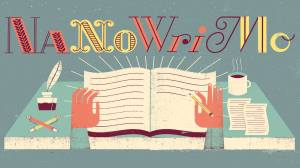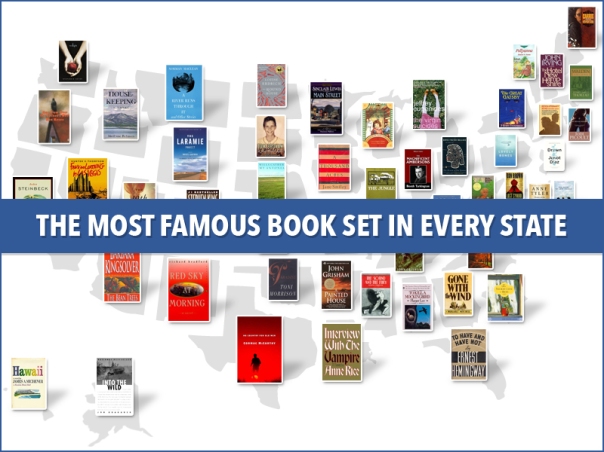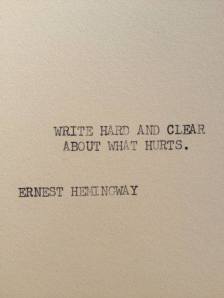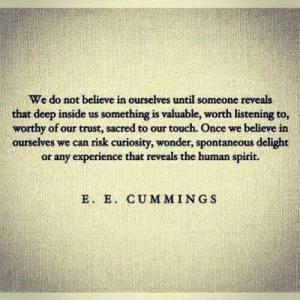Reblogged from Write to Done. See the complete post here.
No matter how much you love writing, there will always be days when you need inspiration from one muse or another.
In fact, I would argue that inspiration is not just a desirable thing, it’s an integral part of the writing process.
Every writer needs to find inspiration in order to produce inspired writing. And sometimes, it can come from the unlikeliest sources.
I’ve compiled a list of some of my favorite ways of finding inspiration — some of them obvious, some of them less so. But it’s always good to have reminders, and if you haven’t used a few of these sources of inspiration in awhile (or ever), give them a go.
- Blogs. This is one of my favorites, of course. Aside from this blog, there are dozens of great blogs on writing and every topic under the sun. I like to read about what works for others — it inspires me to action!
- Books. Maybe my favorite overall. I read writers I love (read about my current loves) and then I steal from them, analyze their writing, get inspired by their greatness. Fiction is my favorite, but I’ll devour anything. If you normally read just a couple of your favorite authors, try branching out into something different. You just might find new inspiration.
- Overheard dialog. If I’m anywhere public, whether it be at a park or a mall or my workplace, sometimes I’ll eavesdrop on people. Not in a gross way or anything, but I’ll just keep quiet, and listen. I love hearing other people have conversations. Sometimes it doesn’t happen on purpose — you can’t help but overhear people sometimes. If you happen to overhear a snippet of interesting dialog, jot it down in your writing journal as soon as possible. It can serve as a model or inspiration for later writing.
- Magazines. Good magazines aren’t always filled with great writing, but you can usually find one good piece of either fiction or non-fiction. Good for its writing style, its voice, its rhythm and ability to pull you along to the end. These pieces inspire me. And bad magazines, while perhaps not the best models for writing, can still be inspirations for ideas for good blog posts. These magazines, as they don’t draw readers with great writing, find interesting story angles to attract an audience.
- Movies. Sometimes, while watching a movie, a character will say something so interesting that I’ll say, “That would make a great blog post!” or “I have to write that in my writing journal!” Sometimes screenwriters can write beautiful dialog. Other times I get inspired by the incredible camera work, the way that a face is framed by the camera, the beauty of the landscape captured on film.
- Forums. When people write on forums, they rarely do so for style or beauty (there are exceptions, of course, but they’re rare). Forumers are writing to convey information and ideas. Still, those ideas can be beautiful and inspiring in and of themselves. They can inspire more ideas in you. I’m not saying you have to read a wide array of forums every day, but if you’re looking for information, trawling some good forums isn’t a bad idea.
- Art. For the writer aspiring to greater heights, there is no better inspiration that great art, in my experience. While it doesn’t compare to the experience of seeing the art in person, I like to find inspiring works of art and put it on my computer desktop for contemplation (Michelangelo’s Pieta is there right now). It doesn’t have to be classical works, though — I’ve found inspiration in Japanese anime, in stuff I’ve found on deviantart.com, in local artists in my area.
- Music. Along the same lines, it can be inspiring to download and play great music, from Mozart to Beethoven to the Beatles to Radiohead. Play it in the background as you write, and allow it to lift you up and move you.
- Friends. Conversations with my friends, in real life, on the phone or via IM, have inspired some of my best posts. They stir up my ideas, contribute ideas of their own, and they fuse into something even more brilliant than either of us could have created.
Read the rest of this amazing post here: http://writetodone.com/31-ways-to-find-inspiration-for-your-writing/




